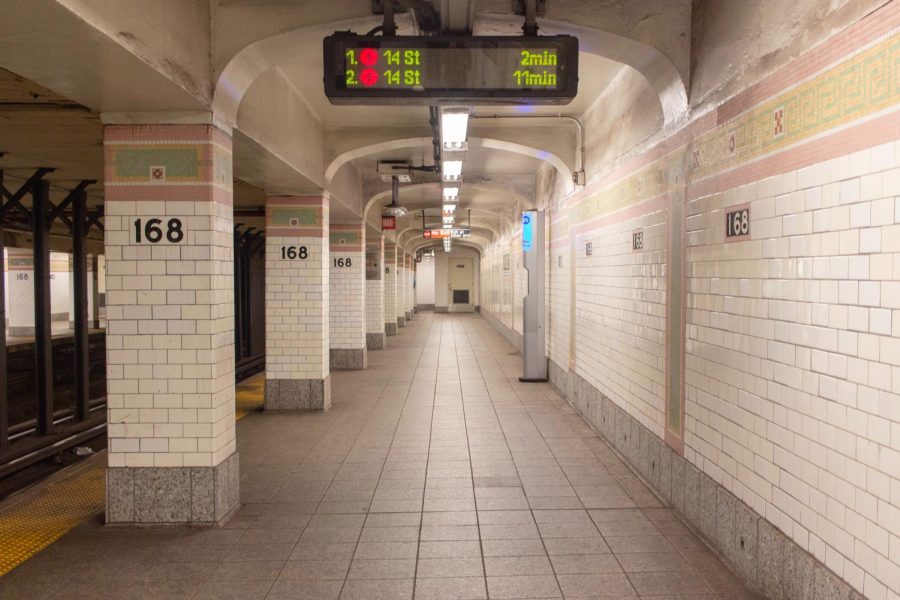Asian-American Discrimination on the Rise Amid COVID-19 Pandemic
September 30, 2020
Residing in New Jersey and attending Rutgers University, Mos Neammanee faithfully rides the subway to school every day. If I were to ask Neammanee to explain the significance of the New Jersey Transit to me a year ago, he might’ve laughed. Being an Asian American in the face of the coronavirus has certainly altered the circumstances.
Neammanee sat alone on the subway minding his own business, much like every other passenger. Marking the start of the coronavirus pandemic, he was wearing a mask- although for reasons of fashion rather than sanitation.
He looked up and saw a man staring at him. That was nothing new. He was used to being stared at.
“Why are they letting these people into the country?” The man scoffed.
That was a little less common.
Neammanee has unfortunately grown accustomed to public degradation and casual racism, but the initial shock of hearing someone levy so much hate against him purely on the basis of race will never not be disconcerting.
“I felt less human, in a way. You know, like I was a lesser part of the society I was living in,” recalled Neammanee, talking slowly.
This sort of anti-Asian-American sentiment is not merely a local prejudice plaguing the realms of New Jersey public transportation, but is more of a global phenomenon resulting from the stigmatization and excessive vilification of Asian people as a whole following the international spread of the novel coronavirus.
USA Today reporter Nicholas Wu will be the first to tell you that.
“The current political climate around coronavirus and the rhetoric that is often deployed has spotlighted certain communities in ways that are most certainly not helpful,” Wu said.
Similar to the experience of Neammanee, that harmful spotlight has proved to be problematic for Wu as well.
“I was out running one morning and I happened to pass an older white woman. I had headphones in. I saw some kind of pointing at me and shouting so I took them out for a second and she was shouting ‘Stay away! Stay away! Stay away!’ I kind of gave her a funny look at first because we were clearly more than six feet away, if not even more than that,” Wu shared.
It got worse.
“I decided not to engage and kept going. I stopped a little bit further down to catch my breath, looked back, and saw a white woman pass within maybe two feet of this person and there was no reaction.”
“Yeah, so um, it didn’t feel great. I don’t think you ever expect anyone to… uh, judge you based on what you look like,” Wu added.
Audrey Pan, a community organizer for RAISE (Revolutionizing Asian American Immigrant Stories on the East Coast), a pan-Asian undocumented group, echos the same spotlighted feeling detailed by Wu, speaking out on her feelings of increased vulnerability outside of her community.
“I feel hypervisible. If I wore a mask, I felt like people were like, ‘oh, she probably has a virus. That’s why she’s wearing masks.’ And then if I wasn’t wearing a mask, I felt like people were like, ‘why isn’t she wearing a mask? She probably has a virus,” Pan explained.
“I felt like it was a double-edged sword,” she concluded.
Aligning with the grievances of many Asian Americans, Pan expressed an immense distaste for the manner in which the Trump administration has addressed the health crisis, with emphasis on the toxicity of weaponized phrases such as “the Kung Flu” and “the Chinese Virus” that the president uses regularly.
“The fact that our president goes on the news and calls this virus ‘the Kung Flu,’ or says ‘the Chinese Virus,’ right; the disease itself doesn’t discriminate, but people often do. The fact that our national leader is coming on TV, on the media, and saying that has ripple effects, and a lot of people might think that’s okay to say, but those racist remarks have real physical implications for people. People have been beaten up, people have been kicked out of stores not let into public places because of this type of language,” Pan said.
This perspective is yet another thing that Pan and Wu have in common.
“Guidance from the WHO and other public health organizations has been to use terms for diseases that do not stigmatize a group of people,” Wu said.
“The administration uses this focus of ‘the Chinese Virus’ in many ways to kind of inflame many existing culture war narratives and to also in many ways distract from their own handling of the pandemic.”
Wu has the support of millions in that thought.



